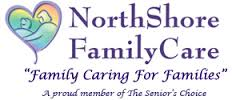WEDNESDAY, APRIL 16, 2014
 For most of us independence and privacy is an important condition for a comfortable life. We each have our habits and methods of doing things, and life has a rhythm that just “fits” our personalities. As people age, however, and physical changes occur, we may find ourselves or loved ones dealing with those changes ineffectively. Sooner or later the question starts ringing in our heads, “When should I look for help?” For most of us independence and privacy is an important condition for a comfortable life. We each have our habits and methods of doing things, and life has a rhythm that just “fits” our personalities. As people age, however, and physical changes occur, we may find ourselves or loved ones dealing with those changes ineffectively. Sooner or later the question starts ringing in our heads, “When should I look for help?”
But then we think, “Oh, I don’t need help. I don’t want to be a burden to anyone.” or “I can’t tell Mom what to do – she’d never listen to me, anyway.” Or “Dad would never accept help, he’s too proud.” or “It’s not time yet, let’s wait”. And so we wait and do what we can ourselves, all the while still wondering, “When should I look for help?”
The good news is we don’t have to guess. There are some common indicators that help us tell when it’s time to get some help. We don’t have to wait for a crisis situation to throw everyone into a panic. If fact, the goal should be to avoid the crisis, for everyone’s benefit.
Here are some indicators to consider…
1. Physical Condition:
Have you or your loved one been diagnosed with a medical condition that affects their daily living? Has dressing, grooming, shaving, toileting, or eating become difficult?
2. Personal Care:
Are baths/showers being taken regularly? Is there any body odor? Are teeth and hair brushed and washed regularly? Are incontinence products worn if necessary and changed regularly and correctly?
3. Driving:
Has driving become difficult, uncertain, or scary? Have reflexes and decision making slowed? Have new dings, dents or scratches appeared on vehicles?
4. Nutrition:
Is your or your loved one’s weight stable? Are you/they eating regularly and nutritiously? Is the refrigerator properly stocked with a variety of foods? Does all the food have current expiration dates? Is there spoiled food in the refrigerator or on the counters?
5. Household Tasks:
Are household chores being done regularly? For example, dusting, laundry, or vacuuming. Are bed linens changed regularly? Have household chores become frustrating, physically demanding, or time consuming?
6. Socialization:
Do you or your loved one have moods of loneliness, despair, depression, frustration, irritability, or anxiety? Is there fear or insecurity about going out of the house?
7. Mental Health:
Are there memory lapses? Is there difficulty finding the right words? Is there inconsistency between words and action? Is anxiety or moodiness evident?
8. Medication:
Are medications being taken regularly and on time? Are medications being refilled on schedule? Does the senior understand what the medications are being taken for?
9. Finances, Mail, Paperwork:
Is the senior having difficulty managing their checkbook, finances, bills and personal affairs? Are there past due notices arriving? Is mail piling up? Is there a reasonable amount of cash on hand? Are important documents or similar items like purses, wallets and keys being misplaced frequently or for long periods of time? Are they appearing in unusual places?
10. Safety, Security and Sanitation:
Are appliances being left on such as the stove or coffee pot? Does the senior fall asleep with cigarettes burning? Is the house allowed to get too hot or too cold? Is the house always unlocked? Has the senior fallen in the past 6 months? Have there been multiple falls? Is there clutter on the floor? Is trash piling up in or around the house? Are toilets functioning properly? Is pet debris evident?
Family members often see the changes in the way a senior moves, acts, thinks, and responds to situations around them but dismiss them until one of two things happen. Either the family begins to spend so much time helping the senior themselves that they have little time for their own responsibilities or the senior experiences a physical or medical crisis. Both of these result in undue stress for the family and the senior. If you have a concern with even one set of indicators, it’s time to acknowledge it, learn more about what is causing it and what options are available to overcome it. Speak openly, calmly, and honestly about the issue and the type of assistance needed to overcome it. Frequently, simple changes can make a big improvement. We encourage you to be proactive and avoid a crisis situation that throws everyone into an emotional reaction. Calm, rational transitions are easier on everyone than stressful ones.
Finally, keep your efforts as informal as possible. Rather than going through the house like an inspector with a checklist, make your observations through normal, casual interaction. Make a mental note when you see things that are of concern. Keep conversation non-threatening and cooperative. Make every effort to respect the senior’s wishes while assisting with their needs.
 Bob Caldwell Bob Caldwell
NorthShore FamilyCare
For more information please visit http://northshorefamilycare.com/
Posted 12:52 AM
No Comments
Post a Comment |
|
Required
|
|
Required (Not Displayed)
|
|
Required
|
All comments are moderated and stripped of HTML.
|
|
|
|
|
|
NOTICE: This blog and website are made available by the publisher for educational and informational purposes only.
It is not be used as a substitute for competent insurance, legal, or tax advice from a licensed professional
in your state. By using this blog site you understand that there is no broker client relationship between
you and the blog and website publisher.
|
Blog Archive
2021
2019
2018
2017
2016
2015
2014
2013
|